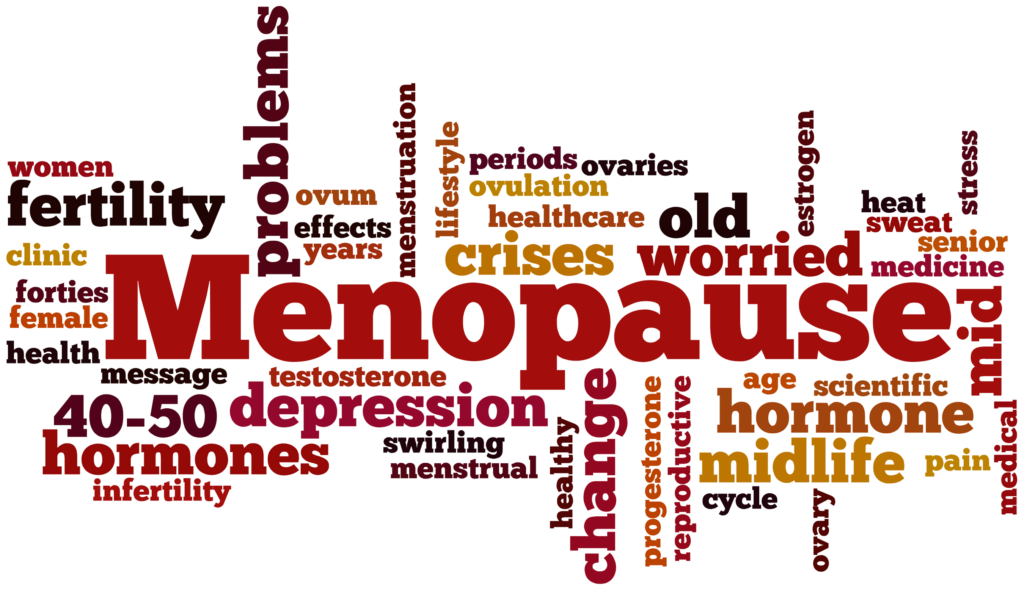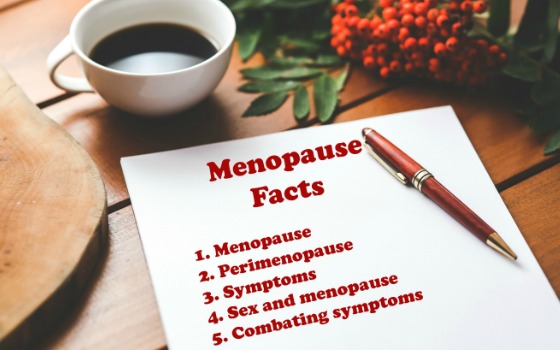 A lot of conversation has surrounded menopause recently (well….not a lot, but more than in the past – I’m hoping to change that!), but somewhere in all the knowledge sharing, recitation and symptom slamming, we’ve sort of overlooked a period in a woman’s life that is just as important as her menopause journey: perimenopause – the pause before the pause.
A lot of conversation has surrounded menopause recently (well….not a lot, but more than in the past – I’m hoping to change that!), but somewhere in all the knowledge sharing, recitation and symptom slamming, we’ve sort of overlooked a period in a woman’s life that is just as important as her menopause journey: perimenopause – the pause before the pause.
I write quite a bit about the effects of menopause, but lately I’ve been giving thought to the women where are standing in my shoes back when my body was going through changes and I didn’t know what was happening to me.
I had just turned forty-five, and my body began to rebel against me. I felt like I was no longer in control, and that lack of dominion drove me a bit nutty. Was I just imagining the symptoms that I was experiencing? Was it all in my head?
I didn’t think I was in menopause because I was still having periods. Despite that, a myriad of symptoms soon began their assault on my body. So, probably like many other women – uninformed about perimenopause, not understanding the symptoms, unaware of the timing, and baffled by the invasion on my body – I attributed my symptoms to everything else but perimenopause: stress, fatigue, not enough sleep. To be honest, I didn’t even know what perimenopause was, and I certainly had no clue that it would last for the next 5 years.
What Is Perimenopause?
Perimenopause is the transition period leading up to menopause. Typically, it begins in a woman’s 40s, but can also begin as early as late 30s. Can you imagine going through that at age 37 or 38?
Many of the symptoms we experience during perimenopause are the result of changing hormones levels. Hormones work together to stay in balance. During perimenopause, the ovaries gradually produce less of the hormones estrogen and progesterone gradually, causing a rise and fall in the normal hormone balance.
What’s Happening to Your Body During Perimenopause?
It’s important to note that every woman will experience perimenopause differently. From the symptoms, to their severity to the timing to the duration – no two women will have the same journey. Having said that, although not an exhaustive list, below are a few symptoms you could potentially have in perimenopause.
♦ Irregular Periods
During perimenopause, you may experience changes in your menstrual cycle pattern and your periods will likely fluctuate like crazy – going from short to long, heavy flow to light flow. You may even experience your periods with less frequency.
♦ Hot Flashes
I hate to be the one to break it to you, but hot flashes don’t just plague women during postmenopause. They can develop during perimenopause, too. Although not every woman will experience hot flashes and/or night sweats, those who do could be in for years of sudden, unannounced rushes of heat, face flushing, sweating and overall misery.
♦ Vaginal Dryness
One particularly disturbing symptom that can begin in perimenopause is dryness in your vagina. A lack of estrogen, which can leave vagina tissue drier and thinner, is the culprit. The result is soreness, itching and painful sexual intercourse.
♦ Premature Ventricular Contractions (PVCs)
You’ve likely never heard of PVCs, but perhaps you’ve experienced them. PVCs are abnormal extra heartbeats that may give you a feeling of a skipped beat or fluttering sensation in your chest. This was one of the first symptoms that I experienced, and I still have PVCs to this day.
♦ Mood Swings and Short-Term Memory Loss
You’re moody, emotional, anxious, even feeling a little depressed. It’s not just you. Irritability, mood swings, forgetfulness . . . they can all be an outcrop of perimenopause.
♦ Weight Gain
Years ago, you could eat like no one was watching and barely gain an ounce. Lately, look at a slice of cake and practically gain a pound. When the numbers on the scale begin creeping up, you find it increasingly difficult to lose those extra pounds. Your body is changing, internally and externally, and you can’t seem to control it.
The Good and Not So Good
 Even though you could experience symptoms of perimenopause for years, it won’t last forever. Perimenopause finally comes to an end one year after your last period. That’s the good news.
Even though you could experience symptoms of perimenopause for years, it won’t last forever. Perimenopause finally comes to an end one year after your last period. That’s the good news.
The not so good news is that once perimenopause ends, you’ve hit the Big M – Menopause, which is that single point in time marked by being period-free for 12 months. After that, you’re considered postmenopausal.
Many of the symptoms you experience during perimenopause can follow you into postmenopause. However, whether in perimenopause or menopause, you don’t have to suffer.
Lifestyle changes can help ease your symptoms, live more comfortably and keep your body strong. Below are a few things you can do to get a leg up on perimenopause:
- Get more sleep.
- Exercise.
- If you drink alcohol, reduce your intake.
- Stop smoking.
- Vitamin D can help strengthen your bones and reduce the risk of osteoporosis.
- Yoga or meditation to help you relax, get a better night sleep and may help with mood swings.
- Eat more whole grains, vegetables, healthy fats and calcium-rich foods.
- Using soy products – like edamame, soybeans, tofu, soy milk, etc. – to supplement your estrogen. Soy contains isoflavones, a plant-based estrogen.
- *Herbal supplements. Some supplements may help in your peri- and menopause journey. Many women have reported finding relief by using certain herbal supplements. Black cohosh, maca root, ashwagandha, passionflower are suggested as being beneficial in treating low mood and hormone imbalance.
*NOTE: Before taking any supplement, consult your physician as some supplements can have side effects and/or interact with your existing medications.
If you feel that your perimenopause symptoms are getting the better of you, or if you want more information, contact your doctor or gynecologist, or find a menopause practitioner in your area.
__________
Sources: WebMD; The North American Menopause Society; The Mayo Clinic





Thank you for sharing this information, as there are many women that may not be aware of the symptoms of perimenopause and are unsure who to ask.
Thanks for kicking off the conversation Antionette. I write so much on menopause; I thought it was time to shine a light on perimenopause.
Be sure to update the symptom list to include heart palpitations. I thought I was on the brink of serious heart issues until I researched (and confirmed by my doctor) that fluctuations in estrogen can affect heart heatlh including benign heart palpitations. It’s hard to swallow that heart palpitations of any kind can be harmless. Of course, it’s best to get cleared by a doctor but it helps to know that heart palpitations could be related to peri and in time will pass.
Yes, Jae…that’s covered under PVCs, which is what I suffered from (and still do get them).